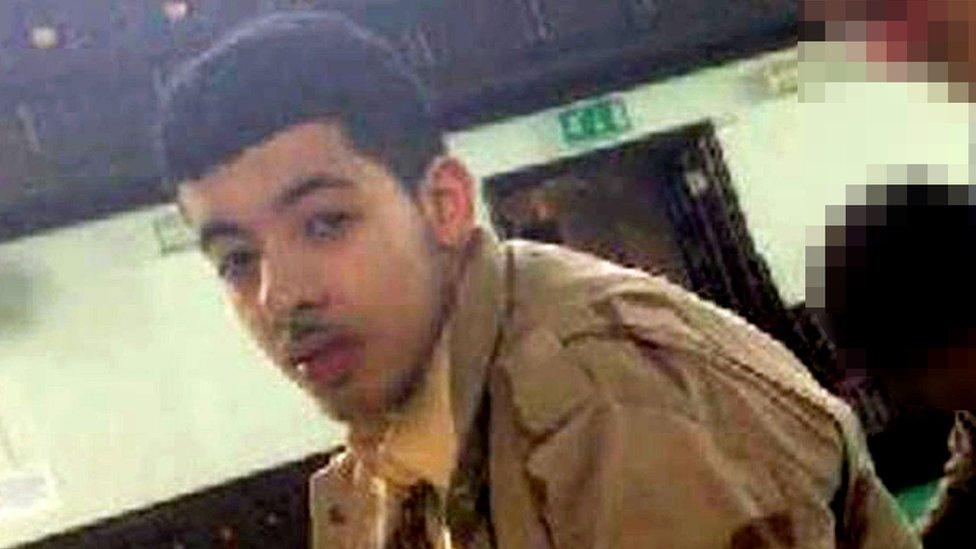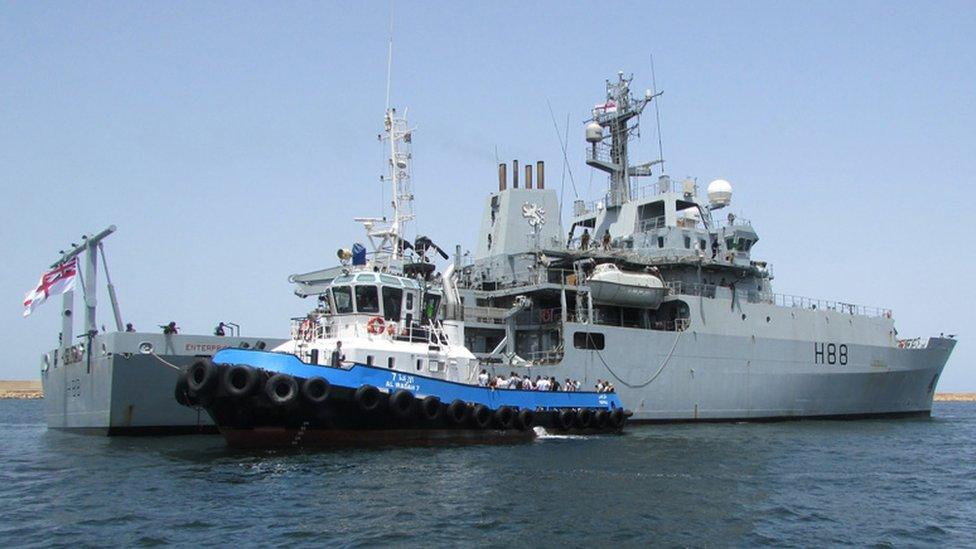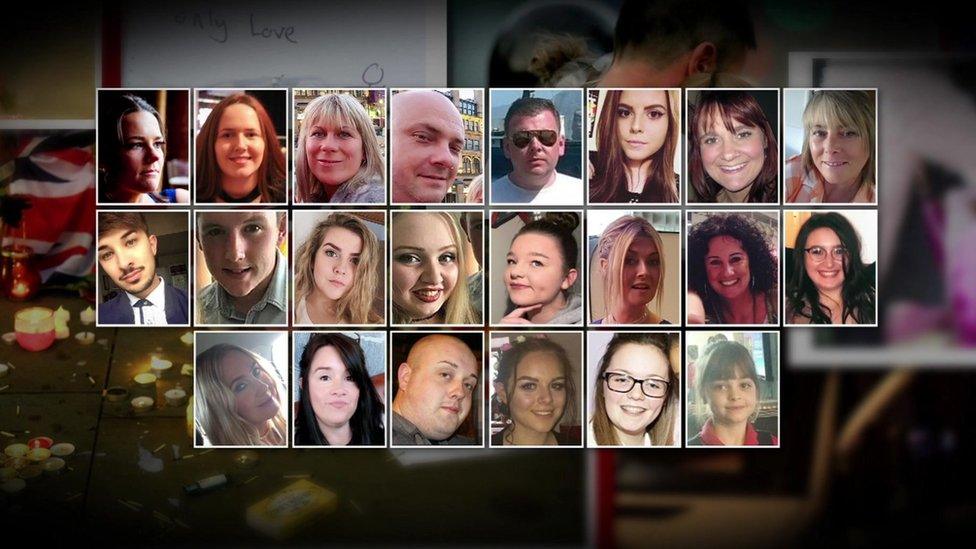Did MI5 miss chance to catch Manchester Arena bomber Salman Abedi? (original) (raw)

Image caption,
Salman Abedi killed 22 people in the bombing at Manchester Arena in May 2017
It has emerged that the Manchester Arena bomber was rescued by the Royal Navy from Libya's civil war - three years before he killed 22 people at a pop concert in the city and months after he first came onto MI5's radar.
Does this new fact raise questions about whether anything could have been done earlier to identify Salman Abedi as a threat - and stop him before he attacked?
At the moment, it looks like it was a quirk of history, rather than a missed opportunity.
Abedi was 19 years old in the summer of 2014 when his parents' home country was descending into an increasingly chaotic civil war.
Differing factions were vying for control and the British government became increasingly concerned about the safety of its citizens - many of whom, like Abedi, had Libyan heritage.
The Foreign Office ultimately had to close its embassy and urge Britons to leave - and the Royal Navy sent HMS Enterprise, a survey ship, to the coast off the capital, Tripoli.
Its mission was to evacuate 110 mostly British citizens, who were facing the prospect of being stranded, and deliver them to safety in Malta.
Abedi and his brother, Hashem, are believed to have been visiting their parents who had moved back to Libya, and we now know that they were on the Enterprise's passenger list.
So, was this a missed opportunity?
 Image source, MOD
Image source, MOD
Image caption,
HMS Enterprise was sent to take British citizens to safety
The answer is probably not, because at the time there was no evidence he was an extremist.
But, confusingly, he had been on MI5's radar.
How can those two things be true at the same time?
It comes down to the nature of how the security service gathers intelligence.
Its mission is to identify "subjects of interest" or SOI - which is jargon for suspected extremists.
When it hears concerning information about someone, intelligence officers begin to investigate and build a picture of the individual's life, movements and associates.

Image caption,
The 22 victims of the Manchester Arena bombing
In the case of Abedi, the independent review of the Manchester attack revealed that he had been actively investigated from January 2014 because it was thought that he might have been an individual who had been seen acting suspiciously with an SOI.
Abedi did indeed know the extremist, but it turned out he was not the man who had been acting suspiciously - it was a case of mistaken identity.
By July 2014 - a month before Abedi's Royal Navy evacuation - MI5 officers had got to the bottom of Abedi's role - or rather lack of role - in that particular investigation and they closed his file.
He was officially classed as a "closed subject of interest of low residual risk" who had limited engagement with genuinely dangerous people.
In other words, at the time of the Libya rescue, he knew someone who was thought to be dangerous, but there was no apparent evidence he was dangerous himself.
Whether his experiences of the civil war that summer in Libya, which saw jihadist and nationalist groups vying with each other for power, shaped his future world view, we don't yet know.
As for his brother, Hashem, he remains in Libya and the UK is still seeking his extradition.